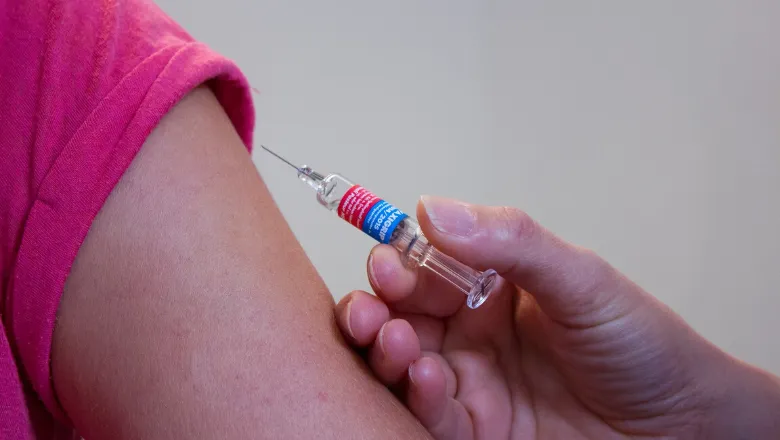It’s great to see this evidence that vaccinated people experience fewer symptoms, are less likely to be hospitalised and that the risk of developing Long-COVID is lower in older people. Our work does show that there are still groups to protect, especially frail older adults, and people living in more disadvantaged areas. People in these groups should be urgently prioritized for second and booster vaccinations.
Lead author, Claire Steves, Reader from the School of Life Course Sciences
27 May 2021
Vaccination reduces the risk of severe COVID-19 infection
Vaccinated adults who contract COVID-19 infection experience a less severe illness, new research has found.

However, adults who are frail, living in areas of high deprivation or have unhealthy lifestyles are more at risk of COVID-19 infection and getting ill, despite being vaccinated, compared to other vaccinated people.
Researchers at King’s College London analysed data from participants logging their symptoms, tests and vaccines on the UK ZOE COVID Symptom Study app between 8th December 2020 and 14th May 2021, including 1,102,192 individuals who had been vaccinated. They examined in detail 2,278 adults who tested positive for COVID-19 after vaccination and compared them to both vaccinated adults who tested negative for COVID-19 and unvaccinated adults who tested positive for COVID-19. The team focused on infections developing more than 14 days after receiving either one dose of the Pfizer or AstraZeneca vaccine, which is when immunity starts to develop according to findings based in a previous study published in the Lancet.
The preprint study showed fewer, milder symptoms were reported in vaccinated people compared to unvaccinated adults who had contracted the virus, and those who’d had a jab were more likely to be completely asymptomatic. Only 104 individuals were hospitalised in the vaccinated group, compared to 239 in the unvaccinated group. People over 60 have a higher risk of long-COVID generally, but analysis showed that risk of prolonged symptoms was down by 28% in the unlikely event of infection after a vaccine. This suggests that the risk of long COVID is substantially less if an older person is vaccinated.
The nature of symptoms was similar to unvaccinated adults – e.g. anosmia, cough, fever, headaches, and fatigue – but all these symptoms were more mild and less frequently reported by people who were vaccinated, and they were half as likely to get multiple symptoms in the first week of illness. Sneezing was the only symptom which was more commonly reported in vaccinated people with COVID-19.
However, individuals who had health conditions that limited their independence – such as frailty - were more at risk of COVID-19 infection after vaccination, and of getting sick. Age on its own, however was not a risk factor. Adults living in areas of higher deprivation were consistently at more risk of infection despite vaccination even when adjusting for health behaviours. COVID-19 infection in vaccinated individuals was less likely in individuals with a healthy lifestyle, for example a healthy diet and normal body mass index.
The findings demonstrate the necessity of targeted policy towards at-risk groups. Frail adults in residential settings have already shown to be disproportionately affected by COVID-19. The research team suggests strategies such as a timely booster programme, targeted infection control measures and more research into the immune response to vaccination in this group could help address the issue.
Professor Sebastien Ourselin, Head of School, School of Biomedical Engineering & Imaging Sciences, said: “Without such a wide and daily access to a diverse population through the app, it would have proven very challenging to identify so rapidly those groups of individuals more at risk of COVID-19 infection post-vaccination. This work is another demonstration that the combination of big data, digital technology and citizen science can change the way we approach major public health challenges.”
Professor Tim Spector, lead scientist on the ZOE COVID Symptom Study app and Professor of Genetic Epidemiology at King’s College London, said: “This research shows the value of the millions of people continuing to log their symptoms in the COVID Symptoms Study App to help understand how to best protect our populations as we move into the post-vaccination era.”



